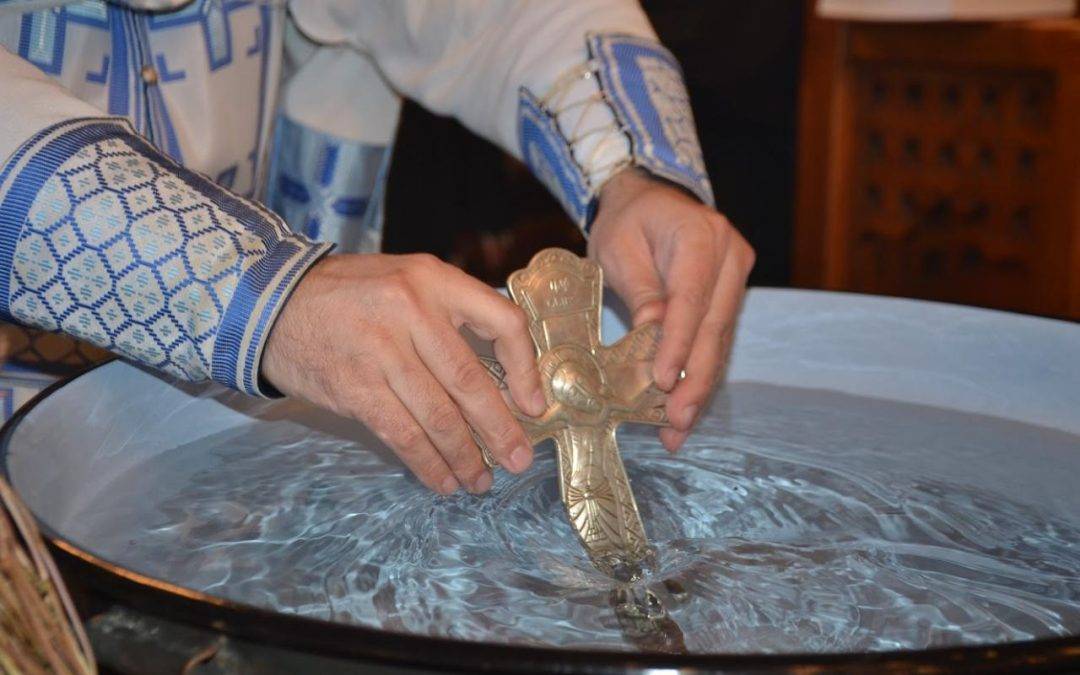
About consecrated water
The water that is consecrated on the eve of the feast of the Epiphany and on the feast itself is called the great agiasma, i.e. the great sanctuary because through the Holy Spirit it has acquired Divine and miraculous power. Agiasma (Αγίασμα) literally means sanctuary. Consecrated water is an image of the grace of God: it cleanses believers from spiritual impurity, sanctifies them and strengthens them for the work of salvation in God.
We immerse ourselves in it for the first time at Baptism, when, after receiving this sacrament, we are immersed three times in a baptismal font filled with holy water. Holy water in the Sacrament of Baptism washes away the sinful impurity of a person, renews him and is reborn for a new life in Christ. Holy water is necessarily present at the consecration of temples and all objects used in worship, at the consecration of residential buildings, houses, and any household items. We sprinkle ourselves with holy water during liturgies, during the prayer service. It is recommended to take the holy water of our heart after the morning prayer rule. Epiphany water is a sacred thing that every Orthodox Christian should have and carefully keep in a holy corner with icons.
On the day of the Epiphany, every Orthodox Christian brings home a vessel with holy water, carefully keeps it as the greatest sacred thing, praying, taking holy water in sickness and all kinds of weakness. “Holy water,” as Saint Demetrius of Cherson wrote, “has the power to sanctify the souls and bodies of all who use it. Taken with faith and prayer, it heals our bodily ailments.
The prisoner George of Zadonsk said that when a person takes prosphora and holy water, then no unclean spirit approaches him, the soul and body are sanctified, thoughts are enlightened to please God, and a person becomes inclined to fasting, prayer, and every virtue.
Venerable Seraphim of Sarov, after the confession of pilgrims, always gave them a taste of holy Epiphany water from a cup.
Saint Ambrose of Optina sent a bottle of holy water to an incurable patient, and, to the astonishment of the doctors, the incurable disease disappeared. Elder Hieroshimon Seraphim of Vyritsky always advised sprinkling food and provisions with Jordanian water (Epiphany), which, in his words, “sanctifies everything.” When someone fell ill, Elder Seraphim blessed them to take a spoonful of consecrated water every hour. The elder said that there was no better medicine than holy water and consecrated oil.
The act of consecration of water, which is performed on the feast of the Epiphany, is called great because of the special solemnity of the rite, imbued with the memory of the Baptism of the Lord, in which the Church sees not only the mysterious washing away of sins, but also the real consecration of the very nature of water through the immersion of God in the flesh into it.
The great consecration of water is performed twice – on the day of the Epiphany itself, and also on the eve of the Epiphany (on the Day of the Cross). Some believers mistakenly believe that the water consecrated on the Day of the Cross is different. But in fact, on the Day of the Cross and on the day of the feast of the Epiphany itself, the act of consecration of water is the same.
Even Saint John Chrysostom said that the holy Epiphany water remains uncorrupted for many years, it can be fresh, pure and pleasant, “as if it were drawn from a living spring at that very moment”. This is a miracle of God’s grace, which everyone sees even now!
According to the Church’s belief, the agiasma is not simple water of spiritual significance, but a new being, a spiritual-corporeal being, the interconnection of Heaven and earth, grace and matter. Therefore, the great agiasma, according to the church canons, is viewed as a kind of lower degree of Holy Communion: in those cases when a member of the Church is imposed penance for sins he has committed and is forbidden to approach the Holy Body and Blood of Christ, the usual canonical remark is made: “Let him drink the agiasma”…
In addition to the Epiphany water, Orthodox Christians often use consecrated water in the prayers (small consecration of water), which are performed throughout the year. The Church performs a mandatory small blessing of water on the day of the Presentation of the Tree of the Life-giving Cross of the Lord and on the day of the Transfiguration, when we remember the words of the Savior, full of the deepest secrets, which He spoke to the Samaritan woman: “Whoever drinks of the water that I will give him will never thirst; but the water that I will give him will become in him a spring of water welling up to eternal life.” (Gospel of John, chapter 4, verse 14)
Translated from Russian and edited by Marija Živković
PHOTOS
RELATED ARTICLES

Patriarch Porphyry Awarded the Order of the Holy Equal-to-the-Apostles Prince Vladimir
After the Divine Liturgy in the Assumption Cathedral of the Trinity-Sergius...
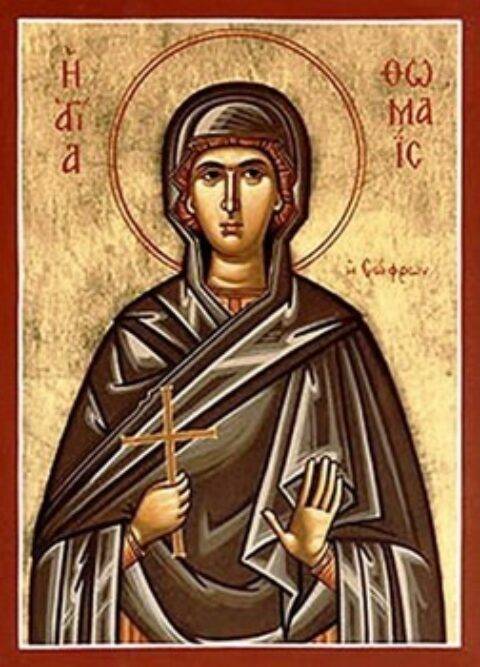
Calendar for April 26 Holy Martyr Thomais
Born in Alexandria of honorable parents; taught piety from a young age and at...
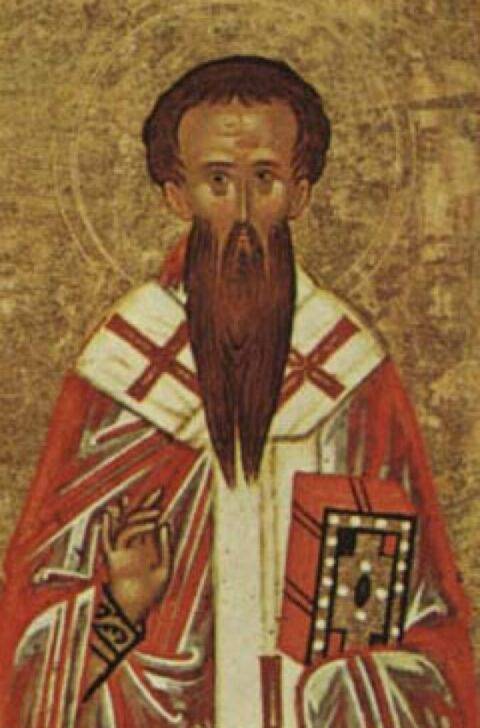
Calendar for April 25 Saint Basil the Confessor – Eastern Friday
A companion and martyr of Saint Procopius the Decapolis. Basil faithfully...


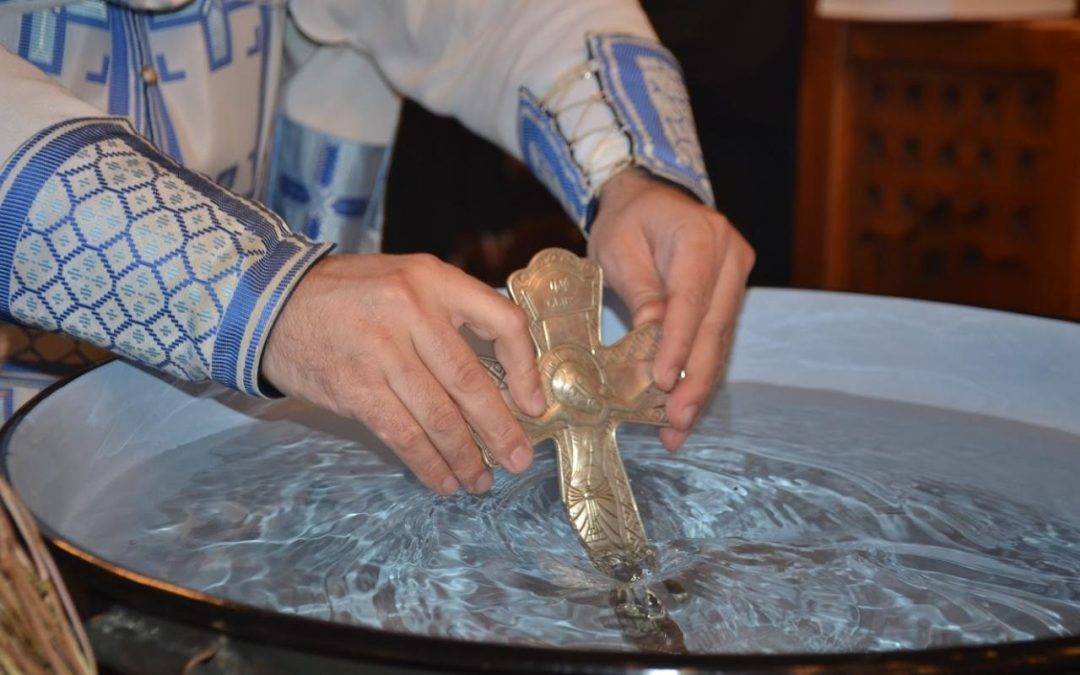

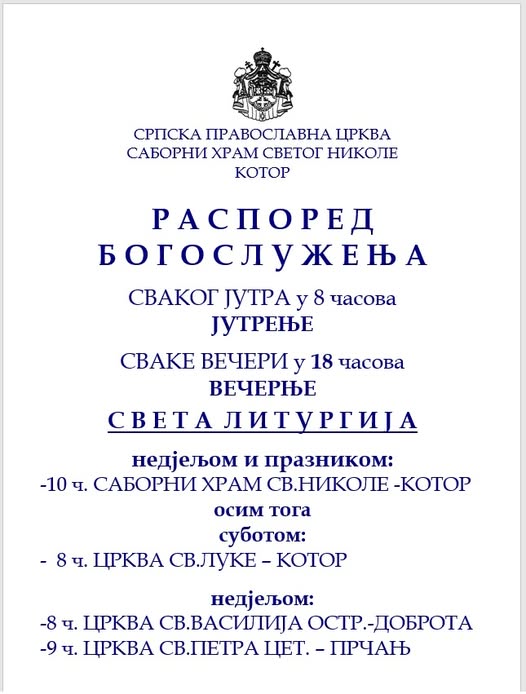
.png)